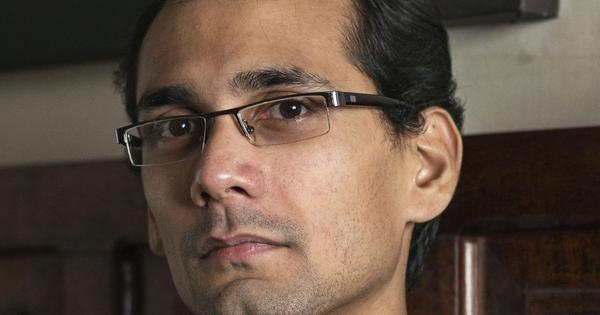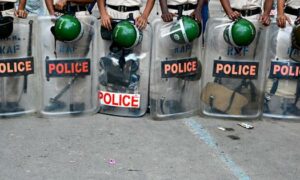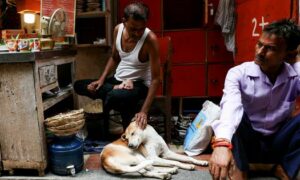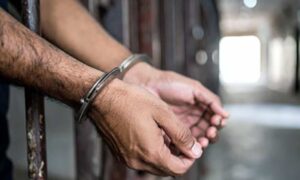
In Indra Das’s new novel The Last Dragoners of Bowbazar, a young Ru lives in Bowbazaar of Calcutta. In school, the bullies call him a “serpent from nowhere”. Since his family is unable to point to their roots, he makes fantastical origin stories of his family and himself. Sometimes, he tells his school friends that he is an Indian but descended from St George who killed a dragon (the schoolboys told him that the boys who looked like him have nothing to do with Christian saints). When he tells his mother that the boys ask him if he is from Nagaland or China, she answers, “They especially don’t know anything about who we are and where we’re from. Narrow minds can’t hold true places.”
Childhood and belonging
Having this ache to belong runs through his entire childhood until he meets Alice, the daughter of Crystal Dragon. He restrains the urge to mislead her and thus begins a friendship. His pride, which had forced him to spin fantastical yarns to impress school kids, takes a backseat as he now considers himself an “un-warrior man”.
In this make-believe world, memory and identity are constantly at loggerheads. Can one exist without the other? Should they? What if your own people, your own parents, make that choice for you? Having a need to belong, having something to tell the boys at school when they ask you “who are you”, a zigzag, neon underline beneath the “who”, that might have been framed as “what are you”, colours Ru’s childhood story. Take a look at this conversation, for instance:
“…You carry the air of someone looking for something-perhaps without knowing what.”
I hesitate. “And you can tell that just by looking at me?”
He studies me for a moment before speaking. “The way people hold books they will never buy is very telling. Some hold them with reverence, some with curiosity. You? You hold them like artefacts, like remnants of a past you are trying to decipher.”
Ru’s people are dragon riders. They worship the dragons and if needs be, eat them. (If you must know, dragonflesh, sliced out from under the scales of a drake, a young dragon, is cloud-white, wet and veined with thread-fine capillaries of lightning; it feels gelatinous and melts on the tongue, leaving a strong fishy, sea-salt aftertaste laced with heady aroma of petrol.)
Forgetting and finding
They offer their own flesh and blood too. They are a hive mind, their faces covered in tattoos. These tattoos are hidden by a veil made from dragon wings. And since this identity needs to be kept a secret, Ru’s mother makes him drink the Tea of Forgetfulness and takes him out of school. With his stories, he was drawing too much attention. And Dragoners don’t need that.
Ru doesn’t begrudge his parents when they constantly try to tuck his recent memories under a cerebral blanket. Das writes: “How much halahala courses through my veins, churned by serpents in our garage? How much forgetfulness have I drunk at my parents’ behest, to protect me from our impossibility?”
Ru had felt like a child from nowhere, who belonged nowhere but inside the walls of his family’s house (not home.) When he met Alice, another kid like him, he felt he was somewhere. When earlier he wanted other kids to applaud him, now he was content to embrace his role as a helpless home-schooled boy if it meant having a friend.
More than about the dragons, this story is about friendship, roots and identity. Even if dragons were replaced by unicorns, not much would have changed. The friendship between Ru and Alice makes up the backbone of the book, though; it is irreplaceable. Conversations between them take on the menace of caste too: “Our names here don’t mean anything. Our family chose ‘George’ because, in this city, people don’t look too hard at people who look like us but are Christians. We aren’t Christian, you understand that, don’t you?”
When Ru asks his mother about their religion, she tells him that what they worship is no business of anyone else’s. She says, “If someone asks, the only answer that matters is that we are Indian. Understood? We live in this country like them.”
The story also celebrates gender fluidity with gusto. Ru tells Alice that when his grandfather was young, there wasn’t much difference between men and women in his culture. They would just be the same, and sometimes men were pretty, and women were handsome or had beards. Later in the book, when Ru stops going to school and his hair has grown longer, Alice weaves it into a braid.
Das’s book is actually two stories. Or more precisely, a story within a story. At the outset, it appears like speculative fiction. But lift the veil of fantasy, and you will find a tender coming-of-age tale that celebrates found family and friendship.
This article first appeared on Scroll.in
📰 Crime Today News is proudly sponsored by DRYFRUIT & CO – A Brand by eFabby Global LLC
Design & Developed by Yes Mom Hosting






